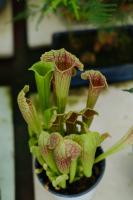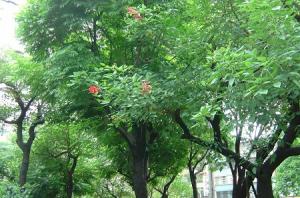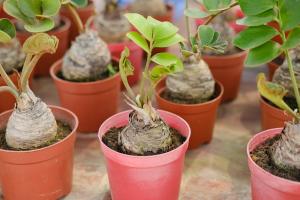A Flaccid Plant Cell Placed in Distilled Water Will:
Plants are amazing organisms that have the ability to convert sunlight into energy through the process of photosynthesis. This energy is then used to produce organic materials necessary for their growth and survival. However, certain environmental conditions can affect the normal functioning of plant cells, leading to changes in their morphology and physiology. One such condition is placing a flaccid plant cell in distilled water.
The Effects of Distilled Water on Plant Cells
Distilled water is water that has been purified by boiling and condensation. It is free of any impurities and minerals that are normally found in tap water. When a plant cell is placed in distilled water, a concentration gradient is established between the cell and its environment. Since the distilled water contains no solutes, it has a higher water potential compared to the plant cell. This means that water molecules will move from an area of higher water potential (distilled water) to an area of lower water potential (plant cell) in order to balance the concentration gradient.
What Happens to a Flaccid Plant Cell?
A flaccid plant cell is a cell that has lost turgor pressure due to a lack of water. Turgor pressure is the hydrostatic pressure that helps to maintain the shape of plant cells. When a plant cell is fully turgid, it is firm and erect. However, when a plant cell loses water and becomes flaccid, it loses its ability to maintain its shape and becomes limp.
Therefore, when a flaccid plant cell is placed in distilled water, water molecules will move from the higher potential (distilled water) to the lower potential (cell). As water moves into the cell, it will start to swell, and turgor pressure will be restored. This will cause the cell to become more rigid and stand up, taking on its characteristic shape. Thus, a flaccid plant cell placed in distilled water will become turgid once again.
The Importance of Turgor Pressure in Plant Cells
Turgor pressure is a critical component of plant cell physiology. It helps to maintain the shape of the cell, and also has a significant impact on their growth and development. When turgor pressure is lost due to a lack of water, plants can become wilted and stunted. This can impact their ability to carry out photosynthesis, as well as the uptake of nutrients and other essential materials from the soil.
Therefore, it is important to ensure that plants receive adequate water to maintain turgor pressure, especially during periods of drought. Additionally, the use of distilled water on plants should be avoided, as it can cause changes in the water potential of the cell, leading to fluctuations in turgor pressure and potentially causing damage.
Conclusion
In conclusion, placing a flaccid plant cell in distilled water will cause it to become turgid once again. This is due to the presence of a concentration gradient that results in the movement of water molecules into the cell, restoring turgor pressure. However, it is important to ensure that plants receive adequate water and avoid using distilled water, as this can lead to fluctuations in turgor pressure and potential damage to the cells.

 how many times do yo...
how many times do yo... how many planted tre...
how many planted tre... how many pine trees ...
how many pine trees ... how many pecan trees...
how many pecan trees... how many plants comp...
how many plants comp... how many plants can ...
how many plants can ... how many plants and ...
how many plants and ... how many pepper plan...
how many pepper plan...





























